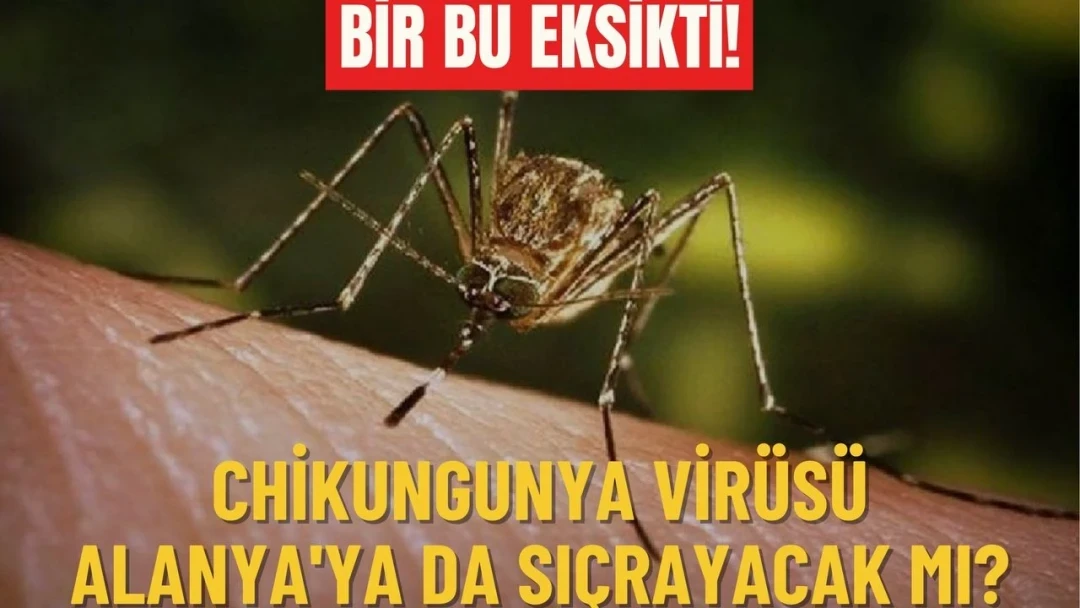Just what we needed! Will the Chikungunya virus spread to Alanya?

As the spread of the chikungunya virus carried by mosquitoes increases, Turkey's inclusion in the risk map has also raised concerns in Alanya.
The World Health Organization (WHO) reported that the chikungunya virus, a mosquito-borne threat, is rapidly spreading worldwide and has the potential to become a global epidemic. This virus, which has no vaccine or specific treatment, is spreading to regions where it was previously unseen due to climate change. Turkey’s presence on the risk map has increased concerns.
Reminiscent of a major epidemic: Diana Rojas Alvarez, WHO expert on tropical diseases, stated that the virus is currently found in 119 countries, putting approximately 5.6 billion people at risk. This shows how widely the virus has spread.
The current spread pattern of chikungunya reminds of the large epidemic in the Indian Ocean during 2004-2005. At that time, island states such as Reunion, Mayotte, and Mauritius were severely affected. A similar situation exists today; especially on Reunion Island, it is estimated that one-third of the population is infected.
Suspected cases are under investigation: While the virus spreads rapidly in Africa in Madagascar, Somalia, and Kenya, case numbers are also rising in South Asian countries. In Europe, local transmissions have been detected alongside imported cases. Following confirmed local cases in France, suspected cases are also being investigated in Italy.
It poses a vital threat to certain groups: Chikungunya causes high fever, severe muscle and joint pain. Although the mortality rate is low, it can pose a vital risk especially for the elderly and those with weakened immune systems. Symptoms are similar to Zika and Dengue fever, making diagnosis difficult. There is currently no vaccine or specific treatment.
Risk areas in Turkey: The virus is transmitted by the tiger mosquito (Aedes albopictus). Due to global warming, this species has spread beyond tropical regions to northern countries. It is known to exist in Turkey’s Black Sea and Marmara regions, posing a direct risk.
Importance of effective measures emphasized: WHO called on governments to take preventive measures and warned citizens to use mosquito repellents, wear long sleeves, and regularly clean water accumulations.
Virus is closely monitored: Although chikungunya reporting is not mandatory in Turkey, the Ministry of Health monitors the virus closely. It has been detected in travelers returning from abroad, and local transmission potential is increasing.


